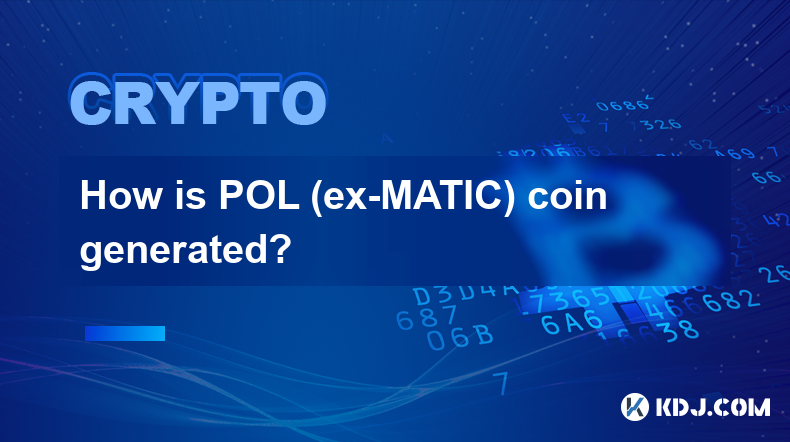-
 Bitcoin
Bitcoin $94,900.9610
0.08% -
 Ethereum
Ethereum $1,777.0522
-2.62% -
 Tether USDt
Tether USDt $0.9999
0.00% -
 XRP
XRP $2.1353
-1.04% -
 BNB
BNB $599.6998
0.09% -
 Solana
Solana $144.5163
-1.58% -
 USDC
USDC $1.0000
0.00% -
 Dogecoin
Dogecoin $0.1685
-2.23% -
 Cardano
Cardano $0.6599
-1.68% -
 TRON
TRON $0.2452
-1.51% -
 Sui
Sui $3.2341
-6.31% -
 Chainlink
Chainlink $13.5500
-1.68% -
 Avalanche
Avalanche $19.7510
-0.28% -
 UNUS SED LEO
UNUS SED LEO $8.7109
0.58% -
 Stellar
Stellar $0.2568
-2.44% -
 Toncoin
Toncoin $3.0243
0.83% -
 Shiba Inu
Shiba Inu $0.0...01256
-2.30% -
 Hedera
Hedera $0.1739
-1.48% -
 Bitcoin Cash
Bitcoin Cash $357.5985
0.37% -
 Hyperliquid
Hyperliquid $20.5224
0.72% -
 Litecoin
Litecoin $83.5744
-4.09% -
 Polkadot
Polkadot $3.9325
-1.11% -
 Dai
Dai $1.0001
0.00% -
 Monero
Monero $286.0631
2.72% -
 Bitget Token
Bitget Token $4.2942
-0.25% -
 Ethena USDe
Ethena USDe $1.0003
0.00% -
 Pi
Pi $0.5789
-2.25% -
 Pepe
Pepe $0.0...07851
-2.10% -
 Bittensor
Bittensor $364.8449
-2.86% -
 Uniswap
Uniswap $4.8840
-2.52%
How is POL (ex-MATIC) coin generated?
Polygon (MATIC) is generated through staking, a process where token holders lock up their MATIC on the Polygon network in return for newly minted tokens.
Dec 08, 2024 at 08:16 am

How is Polygon (MATIC) Coin Generated?
Polygon (MATIC) is the native cryptocurrency of the Polygon network, a layer-2 scaling solution for the Ethereum blockchain. Unlike traditional proof-of-work cryptocurrencies like Bitcoin, MATIC is generated through a process called staking.
What is Staking?
Staking is a process by which cryptocurrency holders lock up their tokens on a blockchain network for a specified period of time. In return for staking their tokens, holders receive rewards in the form of newly minted tokens.
How does Staking Generate MATIC?
On the Polygon network, staking MATIC tokens allows validators to participate in the consensus mechanism that secures and verifies transactions on the blockchain. Validators are responsible for adding new blocks to the chain and ensuring that all transactions are valid.
When a validator stakes MATIC, they are essentially committing to support the network and participate in the validation process. In return for their commitment, validators receive block rewards in the form of newly minted MATIC tokens.
Steps Involved in Generating MATIC through Staking
To generate MATIC through staking, token holders must follow these steps:
- Obtain a Polygon wallet. There are several Polygon-compatible wallets available, such as MetaMask and Trust Wallet.
- Acquire MATIC tokens. MATIC tokens can be purchased from cryptocurrency exchanges such as Binance, Coinbase, and Kraken.
- Choose a staking pool. There are numerous staking pools available on the Polygon network, each with its own set of terms and conditions. Token holders should carefully consider the rewards offered, the minimum staking period, and the reputation of the pool before selecting one.
- Delegate MATIC to a validator. Once a staking pool has been chosen, token holders must delegate their MATIC tokens to a validator within that pool. The validator will be responsible for staking the tokens and participating in the consensus process.
- Receive staking rewards. Validators receive block rewards in proportion to the number of MATIC tokens they have staked. These rewards are distributed to token holders who have delegated their tokens to the validator.
Factors Affecting MATIC Generation
The amount of MATIC generated through staking depends on several factors, including:
- Amount of MATIC staked. The more MATIC tokens that are staked, the higher the potential rewards.
- Staking pool rewards. Staking pools offer different rewards rates, so token holders should carefully consider the rewards offered when selecting a pool.
- Validator performance. Validators receive block rewards based on their uptime, participation, and overall performance. Token holders who delegate their MATIC to a high-performing validator will earn higher rewards.
- Network activity. The amount of activity on the Polygon network also affects the amount of MATIC generated. When there is high network activity, more transactions are processed and more block rewards are distributed.
Conclusion
Staking MATIC tokens is a simple and effective way to generate passive income while supporting the Polygon network. By participating in the consensus mechanism, validators help secure the blockchain and ensure its efficiency. Token holders who wish to earn rewards through staking should carefully consider the factors that affect MATIC generation and choose a staking pool that aligns with their individual needs.
Disclaimer:info@kdj.com
The information provided is not trading advice. kdj.com does not assume any responsibility for any investments made based on the information provided in this article. Cryptocurrencies are highly volatile and it is highly recommended that you invest with caution after thorough research!
If you believe that the content used on this website infringes your copyright, please contact us immediately (info@kdj.com) and we will delete it promptly.
- Can $1,500 Flip into over $13,500 in Just a Few Weeks?
- 2025-05-07 02:35:12
- BTFD Coin (BTFD): The Next Big Meme Coin Explosion Could Be Right Under Your Nose
- 2025-05-07 02:35:12
- A small group of crypto traders made nearly $100 million
- 2025-05-07 02:30:12
- Maxine Waters Objects Crypto Market Structure Bill
- 2025-05-07 02:30:12
- While top-tier cryptocurrencies dominate headlines, a quiet contender like Render (RNDR) is gaining traction among savvy investors.
- 2025-05-07 02:25:12
- With 2025 Setting the Stage for Massive Crypto Expansion, Investors Are Scanning the Market for the Top Gainers
- 2025-05-07 02:25:12
Related knowledge

BSV transaction fees suddenly increased? How to adjust the handling fee to save costs?
May 02,2025 at 06:42am
Understanding BSV Transaction FeesBSV (Bitcoin SV) aims to fulfill the original vision of Bitcoin as a peer-to-peer electronic cash system. One of the key elements in this system is the transaction fee, which compensates miners for including transactions in the blockchain. Recently, users have noticed a sudden increase in BSV transaction fees, which can...

Does BSV transaction require real-name authentication? Is anonymous trading feasible?
May 03,2025 at 03:14pm
The question of whether BSV (Bitcoin SV) transactions require real-name authentication and whether anonymous trading is feasible is a complex one, deeply intertwined with the broader dynamics of cryptocurrency regulations and blockchain technology. Let's delve into these aspects to provide a comprehensive understanding. Understanding BSV and Its Transac...

How to solve the high slippage of BSV transactions? How to choose between limit and market orders?
May 02,2025 at 09:01pm
High slippage can be a significant concern for traders dealing with Bitcoin SV (BSV) transactions. Slippage refers to the difference between the expected price of a trade and the price at which the trade is actually executed. This can occur in fast-moving markets or when there is low liquidity. To address this issue, understanding the mechanics of slipp...

What if BSV transactions are frozen? How to contact customer service to unblock the account?
May 05,2025 at 05:01am
When dealing with Bitcoin SV (BSV) transactions, encountering issues such as frozen transactions can be a stressful experience. This article will guide you through the process of understanding why BSV transactions might be frozen and how to contact customer service to unblock your account. We will cover the reasons behind frozen transactions, steps to t...

What if BSV node synchronization is slow? How to optimize local wallet performance?
May 03,2025 at 04:35pm
When dealing with BSV (Bitcoin SV) node synchronization and optimizing local wallet performance, it's crucial to understand the underlying issues and implement effective solutions. Slow synchronization and poor wallet performance can significantly hinder your experience with the BSV network. This article will delve into the reasons behind slow BSV node ...

How to check BSV transaction records? How to use the blockchain browser?
May 03,2025 at 06:50am
Checking BSV (Bitcoin SV) transaction records and using a blockchain browser are essential skills for anyone involved in the cryptocurrency space. These tools allow you to verify transactions, check wallet balances, and understand the flow of funds on the blockchain. This article will guide you through the process of checking BSV transaction records and...

BSV transaction fees suddenly increased? How to adjust the handling fee to save costs?
May 02,2025 at 06:42am
Understanding BSV Transaction FeesBSV (Bitcoin SV) aims to fulfill the original vision of Bitcoin as a peer-to-peer electronic cash system. One of the key elements in this system is the transaction fee, which compensates miners for including transactions in the blockchain. Recently, users have noticed a sudden increase in BSV transaction fees, which can...

Does BSV transaction require real-name authentication? Is anonymous trading feasible?
May 03,2025 at 03:14pm
The question of whether BSV (Bitcoin SV) transactions require real-name authentication and whether anonymous trading is feasible is a complex one, deeply intertwined with the broader dynamics of cryptocurrency regulations and blockchain technology. Let's delve into these aspects to provide a comprehensive understanding. Understanding BSV and Its Transac...

How to solve the high slippage of BSV transactions? How to choose between limit and market orders?
May 02,2025 at 09:01pm
High slippage can be a significant concern for traders dealing with Bitcoin SV (BSV) transactions. Slippage refers to the difference between the expected price of a trade and the price at which the trade is actually executed. This can occur in fast-moving markets or when there is low liquidity. To address this issue, understanding the mechanics of slipp...

What if BSV transactions are frozen? How to contact customer service to unblock the account?
May 05,2025 at 05:01am
When dealing with Bitcoin SV (BSV) transactions, encountering issues such as frozen transactions can be a stressful experience. This article will guide you through the process of understanding why BSV transactions might be frozen and how to contact customer service to unblock your account. We will cover the reasons behind frozen transactions, steps to t...

What if BSV node synchronization is slow? How to optimize local wallet performance?
May 03,2025 at 04:35pm
When dealing with BSV (Bitcoin SV) node synchronization and optimizing local wallet performance, it's crucial to understand the underlying issues and implement effective solutions. Slow synchronization and poor wallet performance can significantly hinder your experience with the BSV network. This article will delve into the reasons behind slow BSV node ...

How to check BSV transaction records? How to use the blockchain browser?
May 03,2025 at 06:50am
Checking BSV (Bitcoin SV) transaction records and using a blockchain browser are essential skills for anyone involved in the cryptocurrency space. These tools allow you to verify transactions, check wallet balances, and understand the flow of funds on the blockchain. This article will guide you through the process of checking BSV transaction records and...
See all articles




















































































